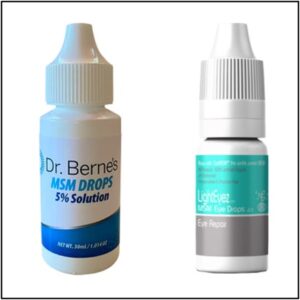If you aren’t bothered by symptoms of low blood pressure, treatment is likely unnecessary. After all, a low BP on its own is not usually a problem. In fact, it’s often taken as a sign of good health.
But if it’s affecting your well-being, you need to take steps to address it. Low blood pressure is treated in the elderly by first determining the underlying cause. If your low BP is a result of your medication regimen, your doctor may be able to adjust your dosages or change your meds. (If you find it difficult to keep your meds organized, a pill dispenser for seniors could help.) If dehydration is the culprit, fluid replacement may solve the problem.

In some cases, you may require medication specifically for your low BP. Two of the most commonly prescribed medicines are fludrocortisone and midodrine. Fludrocortisone is a steroid that causes the body to retain sodium and fluid, thus increasing blood volume and raising blood pressure. Midodrine causes your blood vessels to resist expanding, thereby boosting blood pressure.
However, many people can manage their hypotension through diet and lifestyle changes rather than medical interventions. Here are some tips on how you can fix low blood pressure:
- Drink more water. Consuming additional fluids can boost blood volume and prevent dehydration. Having a glass of water before you stand up or at the end of a meal can sometimes help avoid sudden drops in blood pressure. Sport drinks containing electrolytes can also help but try to avoid ones with high amounts of sugar.
- Limit the booze. Alcohol is dehydrating and can drive your blood pressure even lower.
- Eat smaller meals more frequently. Going too long between meals can wreak havoc on your blood sugar levels. And indulging in heavy meals can cause a sudden drop in blood pressure as the blood moves from your brain to your intestines to help you digest your food. As a general guideline, it’s a good idea to eat small amounts five or six times a day.
- Choose your diet carefully. Cutting back on carbs (especially refined carbs such as white bread and pasta) may help keep you from feeling dizzy after you eat. Plus, foods that are high in folate and vitamin B-12 can help alleviate low blood pressure that is caused by anemia. Asparagus, legumes, leafy greens, eggs, and fortified cereals are good choices.
- Increase your salt intake. Salt causes your body to retain fluid, which raises your blood pressure. Your doctor may recommend taking salt tablets or adding a bit of salt to your meals. Carrots, beets, and olives are a few examples of foods that have naturally higher levels of sodium. But be aware that potassium-rich foods like apricots and bananas lower blood pressure by causing you to lose sodium through your urine.
- Make slower transitions. Change positions slowly and gradually. If you’re lying down, sit up and dangle your feet or march your feet gently for a couple minutes before you try to stand. Once you’re on your feet, stay still for a bit until you feel steady enough to walk.
- Wear compression stockings. They promote better circulation by compressing the leg veins. This keeps blood from pooling in your lower legs and shifts it toward other areas of the body. Styles for both men and women are available.
- Don’t overheat. High temperatures cause blood vessels to dilate, which lowers blood pressure. Plus, sweating out fluids can cause reduced blood volume and dehydration. So be careful to stay out of the sun and don’t do anything too strenuous when it’s warm. Avoid spending long periods of time in hot tubs or saunas. You might also want to keep a nonslip chair in the shower in case you feel dizzy.
Low blood pressure in elderly people has a wide variety of causes and effects. The information above can help you understand the danger signs and take appropriate steps to safeguard your well-being.







